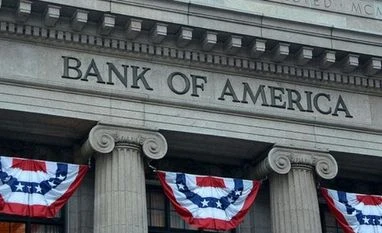Expecting oil prices to slide further, Bank of America Merrill Lynch (BofAML) on Monday widened its current account deficit (CAD) estimate by 0.20 per cent to 2.8 per cent of GDP for fiscal year 2018-19.
The widening current account gap is one of the major concerns which is putting pressure on the rupee, which has depreciated 13 per cent against dollar this year.
Brent breached the $80 per barrel mark Monday and analysts at the American brokerage said they expect it to go up further to $95 by June 2019, which will put pressure on the current account.
"We raise CAD forecasts by 0.20 per cent to 2.8 per cent of GDP in FY19 and by 0.10 per cent to 2.9 per cent in FY20 with our oil strategists hiking Brent forecasts,"it said.
The country's CAD widened to $15.8 billion or 2.4 per cent of the GDP for the first quarter.
The brokerage added that a foreign currency swap window for oil marketing companies (OMCs), the largest consumer for dollars, is also unlikely to help and voted in favour of tapping into the diaspora by doing a NRI bond issue.
More From This Section
"We do not think it is possible for the RBI to set up a forex swap window to fund oil imports by OMCs with our oil strategists seeing USD 95 per barrel by June 2019," it said.
The NRI bonds option has been successfully utilised thrice in past instances of rupee depreciation.
Adverse trade seasonality and the scheduled general elections are other challenges for the country's external sector, according to the brokerage.
It said it is "scarcely possible" for the RBI to pre-commit to swap $8 billion a month when $25-30 billion of forex intervention would push down forex reserves to the eight-month import cover, on FY20 basis, that it sees as "critical" for rupee stability.
If foreign portfolio flows do not revive and the US-China trade war escalates, the brokerage feels the RBI will have to sell another $10-15 billion by March itself to fund FY19 CAD forecast of 2.8 per cent of GDP.
Upping the foreign currency inflow through NRI bonds is also a better option than hiking rates, it said.
In order to stem the rupee depreciation, the brokerage said the government and the apex bank can potentially take measures like hiking rates at the next policy review, operational measures like curtailing net open positions and rebooking of cancelled forwards or hiking the cost of trade finance and also tariff hikes.
)